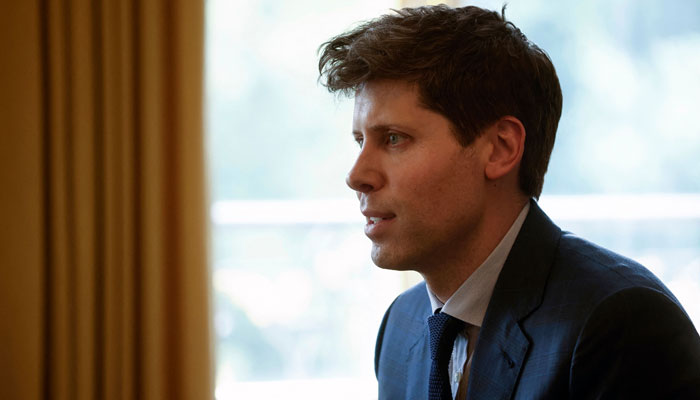OpenAI chief backtracks on his remarks about leaving EU
OpenAI boss Sam Altman says he was "optimistic AI could introduce more jobs and reduce inequality"
CEO of OpenAI, Sam Altman, backtracked on comments he made earlier this week threatening to leave the European Union (EU) if the company faced difficulty complying with the laws proposed to monitor the technology.
Altman on Friday, tweeted saying that he had a "very productive" discussion in Europe regarding [artificial intelligence] AI regulation.
He also said: "We are excited to continue to operate here and of course have no plans to leave."
The EU's legislation would be the first one to regulate the use of the technology.
As AI companies are accused by members of the creative industries — artists, musicians and actors — for using their work to train their machines to imitate them, the law could also include asking the AI companies to unveil the copyrighted material they use to train their machines to create texts and images.
The CEO Altman had regarded the legislation as "over-regulating."
According to Times magazine, the 38-year-old CEO had said that "it would be technically impossible for OpenAI to comply with some of the AI Act's safety and transparency requirements."
While attending an event at University College London, the OpenAI chief said he was optimistic "AI could create more jobs and reduce inequality".
He also met with British Prime Minister Rishi Sunak and executives of other AI companies, DeepMind and Anthropic, to talk about the technology's risks — from disinformation to national security and even "existential threats" — and the voluntary actions and regulations required to manage them.
Recently, tech experts and leaders including Elon Musk have been urging policymakers to regulate the use of AI, expressing concerns that the technology could "threaten humanity's existence" and have insisted on "slowing down its development".
During the meeting, PM Sunak said that AI could "positively transform humanity" and "deliver better outcomes for the British public, with emerging opportunities in a range of areas to improve public services".
-
Shanghai Fusion ‘Artificial Sun’ achieves groundbreaking results with plasma control record
-
Polar vortex ‘exceptional’ disruption: Rare shift signals extreme February winter
-
Netherlands repatriates 3500-year-old Egyptian sculpture looted during Arab Spring
-
Archaeologists recreate 3,500-year-old Egyptian perfumes for modern museums
-
Smartphones in orbit? NASA’s Crew-12 and Artemis II missions to use latest mobile tech
-
Rare deep-sea discovery: ‘School bus-size’ phantom jellyfish spotted in Argentina
-
NASA eyes March moon mission launch following test run setbacks
-
February offers 8 must-see sky events including rare eclipse and planet parade












